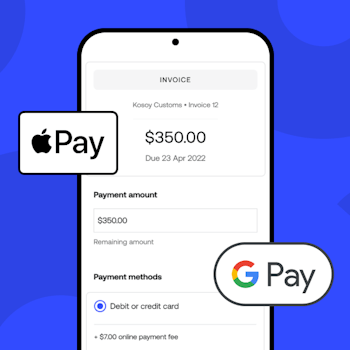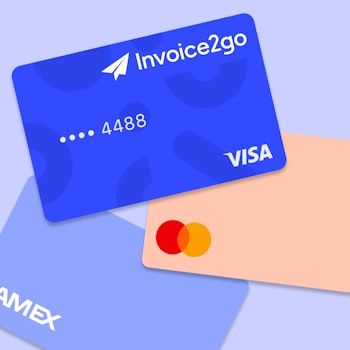
Expert funding tips for small businesses and startups: Q&A with investor Meera Clark
Starting and growing your own business can be both exhilarating and exhausting. There’s the excitement of bringing a dream to fruition and the inevitable challenges of carving a new path, including getting the funds necessary to grow. According to an article published in Inc.com, only 4 out of 100 businesses survive past the first ten years. Why? They’re unable to pay the bills.
Finding funding resources – whether it’s a grant, loan, or private investment – is challenging for anyone, especially if you have no track record or come from a traditionally marginalized community. However, because funding your business is one of the most crucial financial choices you’ll make, the more knowledge you can arm yourself with, the better prepared you’ll be to make effective decisions and get the cash you need to realize your goals.
To gain insight on getting funding, we recently chatted with Meera Clark, an investor that’s developed an impressive track record over the past few years. She’s on Forbes 30 Under 30, Business Insider’s 55 Investors to Watch, and Venture Forward Women in VC: Rising Stars to Watch. In all her investments, Meera strives to back diverse founders focused on building a better future. She’s currently an investor at Redpoint Ventures, a fund that’s partnered with leading technology companies, including Netflix, NextDoor, Snowflake, and more.
In this Q&A, Meera shares insights on opportunities for both business owners and investors despite the current economic uncertainty. She also discusses how founders can position themselves to stand out from the crowd and increase their chances of success.
Tell me a little bit about yourself and your work.
I joined Redpoint Ventures a few months ago, which was an exciting time to be making a transition because it was coincidentally aligned with the recent market meltdown. But before Redpoint, I spent three years at Obvious Ventures.
Obvious invested with the belief that the largest companies of our time would be solving humanity's greatest challenges, like protecting the environment and general wellness. That ethos defines my approach to investing and the sorts of businesses that really get me out of bed in the morning.
I joined there from Morgan Stanley and spent the first phase of my career learning the ropes on the trading floor before moving to investment banking. I worked at Morgan Stanley's technology investment banking group and then finished in the Multicultural Innovation Lab, Morgan Stanley's accelerator dedicated to investing in women and multicultural founders. I love that group, and the mission is near and dear to my heart.
That’s so cool! How does a program like that work? How can businesses apply, and what are some of the main benefits?
Within the Multicultural Innovation Lab, we sought to foster an ecosystem that supported underrepresented founders and ran a very open enrollment process. Companies would apply on our website, run through a fairly rigorous multi-month screening program, and then we would invite them in on a cohort basis.
It was very similar to Y Combinator, where we both provided access to capital – we were investing $200,000 of the bank’s balance sheet – and then working with those companies over the course of six months, providing coaching and feedback, and structured programming from all parts of the bank to help them accelerate their growth.
One of the most interesting things I discovered from the Multicultural Innovation Lab was that one of the most significant sources of leverage we provided was connections. It wasn’t just the money or the coaching from us, but the cross-pollination of ideas and learnings between founders. Smart people learn from their mistakes and smarter people learn from others.
Another interesting thing about my time with the Multicultural Innovation Lab was refining my understanding of what a venture-backed startup looks like versus a small business. While their capital needs might look similar, the sources of capital are very different. While both need access to capital, the companies willing to lend to them and the underwriting processes for those loans are very different. That's framed my thought processes surrounding this idea of economic empowerment, and it’s really exciting because there is a breadth of opportunity right now.
That's really interesting. Could you dive into some examples of how sources of capital might differ?
One of the primary differences is the funding source. Is it equity? For example, am I giving you a million dollars in exchange for a percentage of your business? Or is it debt? You can structure that debt in many ways. It could be asset-backed financing; it could be a factoring program; it could be a convertible debt offering; it could be a loan from a bank. Thinking about the variety of debt solutions versus immediately going to equity to fuel your company is very valuable for businesses.
On the flip side, the existing financial services industry hasn’t always been forward thinking on how to serve new business needs. Many businesses haven’t been around long enough to have sufficient data to underwrite, or their business model is unlike anything a traditional bank has seen. There’s a ton of opportunity for startups to come in and fill those roles through more creative underwriting processes or dynamic repricing initiatives.
What FinTech startups are doing now that is incredibly valuable for the broader ecosystem is recognizing that not all business borrowers are the same. Their profiles differ from a risk perspective, needs perspective, and even how they want to be spoken to and rewarded. Whether it's points, cash back, or another reward, needs differ hugely depending on the business and the stage they’re in. The ability of the broader FinTech ecosystem to better meet business owners’ needs has been a really exciting evolution over the past several years.
You’ve helped so many businesses to grow and succeed. What can business owners do to stand out and have more success?
Access to data is super valuable for small business owners and venture-backed founders. What are the goalposts that you’re striving towards? How do I think about the success of this business? What benchmarks do I have to understand clearly if I'm on or off track?
Over the past few years, you've seen a proliferation of metrics investors have published about good retention, good margins, and reasonable valuation for a business. Access to that information, particularly for underrepresented founders, is very valuable. Because while it might be obvious to someone that’s heard this information a bunch of times, if this is your first time building a business and no one in your family has built a business with similar scale aspirations, it's a great way to level the playing field. I think about that a lot and share that information with founders I'm working with and cheering for.
What are some things that get you really fired up and stand out to you personally or like in teams that you lead or worked with?
Since I typically look at fairly early-stage companies, I focus mainly on the team and Total Addressable Market [or the maximum amount of revenue they can expect to generate]. I look at the founder's drive, the quality of the team around them, and the attractiveness of the market they're addressing.
When it comes to the quality of the team, I’m very focused on the idea of earned insight. What makes this team uniquely positioned to build in this space? Why is this their life calling, and why will they win versus others in the field? That might be a unique experience that gave them insight or a super strong network because they've been building for years. Or, honestly, it might just be that they are the hardest working person I've come across, and they're going to grind through good times and bad. That can also be a key determiner of success, particularly in challenging markets like today. It’s not just about being smart or having a good idea. I want to have confidence the company can take it to the finish line.
On the market front, I think about it in two ways. One is the size of the market. Different investors have different cut-offs for market size, depending on their fund. But you have to consider whether you can address the opportunity in the market, and if strong competitors are already taking up a majority of the spend. Will this startup likely disrupt those incumbents because enough has changed in technology or consumer preferences that the market is asking for a new solution?
Finally, I consider regulatory factors and consumer spending trends that could speed up or slow down growth. Is now a better time than ever for someone to be building in that space?
In a recent article, you wrote about the transition to more freelancing and self-directed work. Could you talk about some of the opportunities you see, even though there’s so much economic uncertainty?
It's a really exciting time for freelancers, despite the number of unknowns. As companies face the hard reality that the cost of capital is going up significantly, and private equity investment is increasingly hard to come by, they’re forced to be more efficient. This leads them away from committing to high fixed costs, like employees, and to invest in flexible talent like freelancers. As a result, freelancer spending is likely to accelerate, even though the macro is softening a little.
On the flip side, I suspect you'll see a lot more folks returning to the job market. In the past 24 months, many individuals got rich off Robin Hood or became Bitcoin billionaires. That was good and fine while it was working. But now, with many of these assets down 50%, 70%, or 90%, their economic footing, particularly if they've committed to a lot of other fixed costs, is very different, which is likely to lead them back to work.
It will be a vibrant, exciting, and innovative time – both in how people work and in the new solutions for them. I'm excited about the future ecosystem because there is still so much low-hanging fruit related to improving these freelancers' daily lives.
You’ve had an impressive career and a lot of success in the past few years. What are some things that have helped you on your personal journey?
I would lean on two pieces of advice I was given early in my career. One was to always ask for the order [in other words, ask a prospect to buy your product or service]. You can give a client the best idea in the world, but if you don't ask for the order, you won’t get paid for it. Willing to ask for whatever that is, whether it’s help, an introduction, or feedback, is crucial.
What I think is equally as important – if not more important – is earning the right to ask for the order. So, I really think about how I can make the obvious choice for this person. Investing in the yes has been critical to my development.
The other piece of advice I received from my first manager was the idea of investing in my peers. He told me that my number one job for the first six months was investing in the people around me because these relationships would carry me forward for the next 10 to 20 years.
I've continued to double down on investing in others. That’s paid dividends because venture can be a lonely job. But having social, emotional, and intellectual support has been huge. Investing in those relationships has been a big part of getting to where I am today.
Related Articles

How to accept credit card payments on Invoice2go in 3 simple steps

Accept payments online via Apple Pay and Google Pay

Must-not-miss write-offs as you wrap up 2022 year-end finances

5 ways accepting credit and debit card payments helps your business stay resilient

4 easy ways to increase cash flow today

What is Small Business Saturday and why is it important?
The features and surprising benefits of a well-designed packing slip
